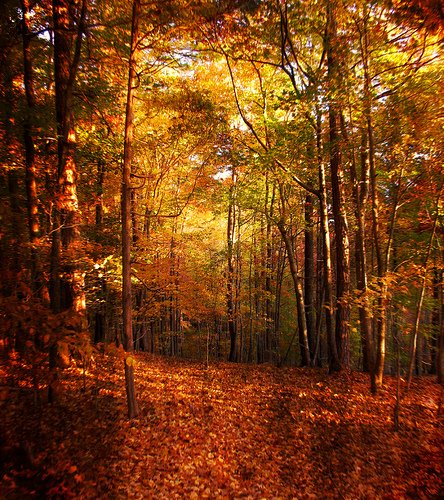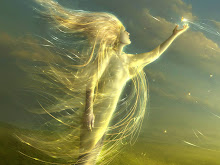"Unniyetta!!!"… He was preparing a paste out of colors that he would need later in the evening, when his brother Hari called him. His sight was gradually getting clouded with moss like blobs. He squinted to see what the matter was which made him look much older than the 45 years that had passed him by. "People from the newspaper have come to see you! They say when your story gets published you will be called to big cities," Hari said. Unnimaya his mother had named him strangely, after the village Goddess. The deity was to give him sustenance after all. Unni thinks about what his brother said, and as always surrenders his will to the divine plan. He finishes his preparation and goes out to the courtyard where two men were standing and talking. He asks them to sit on the sole piece of furniture available, the rope cot he sleeps in at night. They greet him and the smile he gives in return reveals his stained teeth. His expression still had something youthful about it, perhaps it was the eyes. They ask him about the trade he plies. He humbly narrates how his own father had been in the same line of profession before him, just like his father and grandfather. He was the member of one of the castes who had been given the right to perform Theyyam for the welfare of the people of his land by Lord Parsuram himself. They ask him how he feels playing "god". His smile flickers. He turns silent and after a while replies, “It’s not me playing god, it’s the gods that play through me. I am just the vehicle." They ask him about all the preparation that goes into his performance. He tells them… about the elaborate costume, the folk tales, and how for 4-6 months of the year he travels to places where people gather to see the deity that he transforms into. He tells them that the drawings on his face are made using red clay or stone called the “Chayillam,” his eyes lined with homemade kohl; other materials used in coloring include rice powder, turmeric, and limestone. The frame of his elaborate headgear is made using the wood of the drumstick tree. The costume is then decorated with tender buds of the coconut tree called “kuruthola.” He then uses beeswax to stick all the different components of the decorations onto the frame. Its hard work, and often he has no help. The guests are satisfied; they had traveled a long way down south in search for this man. Later, at night, along with the footage of his performance, they will take home to Delhi this interview, to show how the ancient art form of “Theyyam” is still alive and how culturally rich their native state, Kerala is.
After they leave, Unni groans as he gets up from the floor. His knees aren’t what they used to be. Arthritis has set in. His brother’s two young boys are in the backyard learning the folk songs that they will sing along with their father in the evening. They look bored and the younger one is paying more attention to the football game going on in the field afar. His father stops and sighs. He exchanges a look with Unni before clipping the young one on his ear for his carelessness. He had been summoned to pick the coconuts from the tharavadu (ancestral household) and he was late. When he reaches there, the kaaryasthan (caretaker) sneers at him, “what is it that I hear; your brother wants to take you to Big Cities?? Isn’t the fame that you get here enough for you?”
"It’s is nothing like that, emmaane, some people wanted to know about Theyyatom…” “Hmm... Sheri Sheri… do your work.” His modalali (employer), the owner of the house, didn’t know who picked his coconuts. He had no reason to. Nobody knew his name. They all called him ‘eda’ (roughly same as eh, you), or ‘vannan’ (by his caste name).
----------------------------------------------------------------------------------------------------------
Evening is going to set in. With a bit of tobacco, and a swig of his usual, Unni walks to the kaavu (grove) along with the men in his family, where the unnimaya temple is. They occupy a shed behind the temple and start getting ready for the performance. His family has always been known to play the character of Chamundi, the goddess. The kaavu is not silent as usual now. It is the month of Dhanu (December), and the trees are whispering their secrets to the misty air. The temple deep in the grove is filled with people who have lit the lamps. He can hear the silent anticipation of the crowd beckoning. They are waiting for their Goddess.
As he adjusts his headgear, he thinks about his life. He is a bit surprised at the unusual direction his thoughts have taken today. Perhaps it was because those people asked him about his dreams. He thinks about the three families had rejected to marry their daughters to him because his livelihood and health wasn’t hopeful or stable. When he sees his brother’s children, he thinks it is for the best. He would have never been able to give them a good life, free from oppression or the grinding poverty. Yet, he had dreams, of having someone to whom he could pass on his only mortal legacy. His identity and his capacity to tell the stories of god and then become the god himself... His brother disrupts his musing, and offers him a drink of water. He accepts it gratefully. He cannot consume anything until his twelve hour performance finishes late at night. That is, with the exception of the sacrificial blood of the chicken he would behead and the offering of the local toddy in little mud pots that the devotees would bring him. And in return, the deity would listen to all their problems and give what She thought were solutions to those. He thinks of all the mighty modalalis who break down and sob in front of the deity in supplication or devotional ecstasy. They would be mocking him the next day, unaware of his divine identity.
It is dark now. His body is dependent on the alcohol. His back is already aching and his joints are stiff because of the way the costume has been tied. He is ready now, with the color of blood on his face, and eyes dark enough to frighten the devil itself, he swishes the dirt off his skirt made of palm fronds. The bells of ghungroo tied on his knees shudder quietly. A mirror is brought to him… he looks at it… and the deity has arrived...
Subscribe to:
Post Comments (Atom)




wow! one of my favourite.. it's so rich in visual description that i'm all ready to witness God! =)
ReplyDeleteloved reading it... you could probably write more about it..later ..?!
its funny how everyone who has read it asked me to write more about it. and i am clueless as to how to go about it. ill read up some more :)
ReplyDeletethank you so much :)